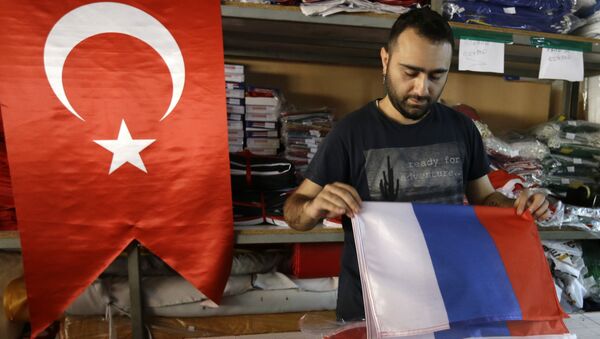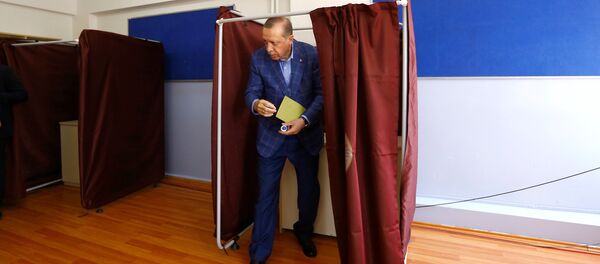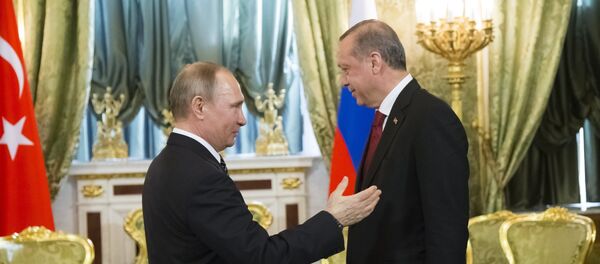Commenting on how Russian-Turkish relations will develop after the referendum, expert on Russia Cenk Baslamis suggested that it is Ankara's ties with the EU and the US that will have an impact on its relationship with Moscow.
Judging by the first statements issued by Turkish authorities and the reaction of several EU countries to the referendum's results, it seems that there will be new turmoil and tension in relations between Turkey and the EU, according to Baslamis.
"Meanwhile, the US has not yet made an official statement on the Turkish referendum. While Turkey may continue to distance itself from the EU, it is very unlikely to freeze its ties with Washington. Given these conditions, the development of relations between Moscow and Ankara will be of paramount importance," Baslamis told Sputnik Turkey.

At the same time, he pointed to disagreements in Turkish-Russian relations which are, in particular, related to the Syrian issue.
"This recently added to in increasing differences between Ankara and Moscow after Turkey supported the US air attack on the Syrian military base," Baslamis said, adding that Turkey earlier tried to stick to Russia's stance on the Syrian issue.
The current situation indicates that one should be ready for a period of ups and downs in Turkish-Russian relations in the near future, he believes.
"Despite the fact that a number of Ankara-Moscow disagreements still persists, Turkey is very unlikely to take steps against Russia, which is in turn also interested in maintaining contact with Turkey," he said.
Turkish economics expert Tuncya Tursucu, in turn, remained cautiously optimistic about the future of Turkish-Russian relations.
In this vein, he pointed to the November, 2015 downing by Ankara of a Russian warplane and the murder of the Russian ambassador in Turkey, which Tursucu said had seriously damaged bilateral ties.
"Although the relationship has finally normalized, the parties remain cautious toward each other. As an example, we can mention the Russian side's ongoing restrictions on Turkish tomato exports to Russia, which may cost Ankara about 500 million dollars a year," he said.
Tursucu also referred to Moscow's alleged statements about possible turmoil in Turkey following the referendum, which he said shows "how fragile and sensitive the current basis of the Russian-Turkish relationship is."
"I think that in the future relations between the two countries will continue to develop in a friendly, but at the same time cautious way," he concluded.
A NATO source, for its part, told Sputnik that the North Atlantic Treaty Organization regards the outcome of Sunday's referendum as an internal affair of the Turkish people.
Never miss a story again — sign up to our Telegram channel and we'll keep you up to speed!







